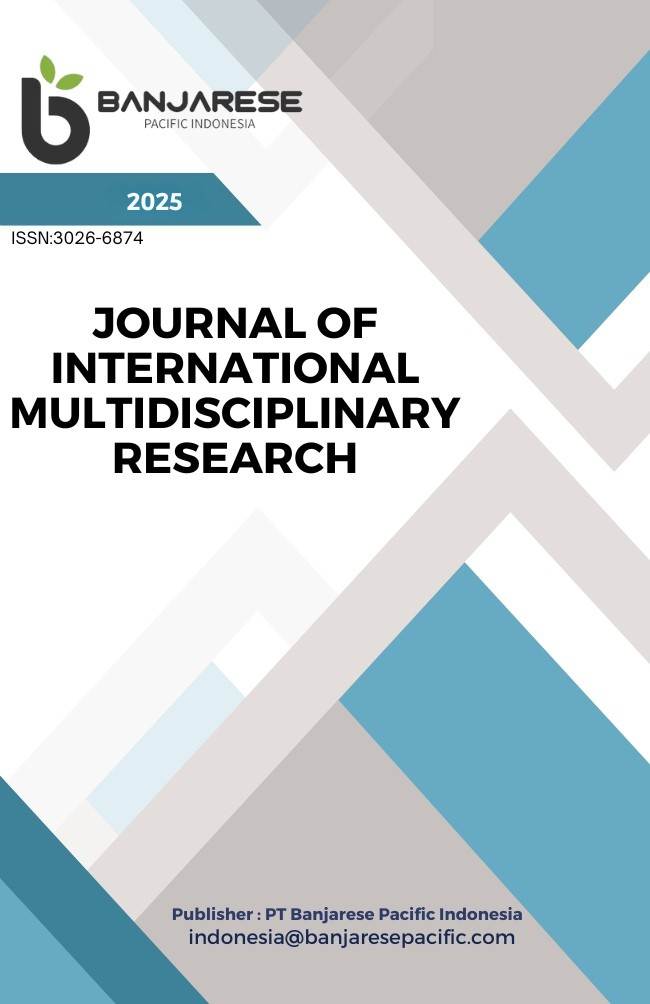When Words Become Weapons: Volunteer Communication Tactics to Combat Drugs at The Grassroots
DOI:
https://doi.org/10.62504/jimr1321Keywords:
grassroots communication, volunteer advocacy, against drugs, communicationAbstract
This study investigates the communicative practices of youth volunteers involved in Surabaya’s Kelurahan Bersinar anti-drug initiative, highlighting the role of grassroots messaging in shaping public health discourse. Grounded in framing theory, narrative theory, and social capital theory, the research explores how volunteers construct persuasive anti-drug messages through culturally rooted storytelling, emotional framing, and symbolic communication. Using a qualitative case study approach, data were gathered through interviews, focus groups, observations, and campaign materials with 18 youth volunteers. The findings reveal that volunteers effectively used personal experiences and local narratives to foster trust and collective identity, transforming individual challenges into shared stories of hope and resistance. Emotional strategies, such as gain-framed and fear-based appeals, were deliberately crafted to trigger empathy and promote behavioral change. Volunteers also capitalized on their deep integration within community networks to enhance message credibility and reach, cultivating both bonding and bridging social capital. The study challenges top-down approaches in health campaigns, illustrating the power of peer-led, culturally resonant communication. It contributes a layered communication model for grassroots health advocacy and underscores the transformative impact of narrative-driven volunteer engagement. The study recommends integrating cultural framing in training programs and exploring digital channels to scale grassroots messaging in future research.
Downloads
References
Bolshunov, A. Y., Bolshunova, S. A., Proskurina, A. S., & Tyurikov, A. G. (2021). Potlatch, Absolute Hospitality and Metaphorization in Constructing Socioeconomic Intercultural Reality. SHS Web of Conferences, 125, 1004. https://doi.org/10.1051/shsconf/202112501004
Crouchman, C., Griffiths, L., Harris, R., & Henderson, K. (2022). Nurses’ and Midwives’ Experiences and Views About Responding to Out of Work Emergencies: A Constructivist Grounded Theory Study. Journal of Advanced Nursing, 78(6), 1755–1772. https://doi.org/10.1111/jan.15146
Duke, J., MacMonegle, A., Nonnemaker, J., Farrelly, M. C., Delahanty, J., Zhao, X., Smith, A., Rao, P., & Allen, J. (2019). Impact of the Real Cost Media Campaign on Youth Smoking Initiation. American Journal of Preventive Medicine, 57(5), 645–651. https://doi.org/10.1016/j.amepre.2019.06.011
Florence, E., Fleischman, D., Mulcahy, R., & Wynder, M. (2022). Message Framing Effects on Sustainable Consumer Behaviour: A Systematic Review and Future Research Directions for Social Marketing. Journal of Social Marketing, 12(4), 623–652. https://doi.org/10.1108/jsocm-09-2021-0221
Jothieswari, Dhamotharan., Bindu, D. H., & Nelavala, A. (2023). Deciphering the Narcotic Drugs and Psychotropic Substances Act of 1985 and Its Enforcement Guidelines in India. Future Journal of Pharmaceuticals and Health Sciences, 3(4), 534–539. https://doi.org/10.26452/fjphs.v3i4.535
Kabakhidze, E. L., Belogash, M. A., & Avdeeva, E. (2021). The Concept of Just War in Russian and American Linguistic Cultures. SHS Web of Conferences, 103, 2008. https://doi.org/10.1051/shsconf/202110302008
Kotwas, M., & Kubík, J. (2022). Beyond “Making Poland Great Again.” Nostalgia in Polish Populist and Non‐populist Discourses1. Sociological Forum, 37(S1), 1360–1386. https://doi.org/10.1111/socf.12842
Lu, H., Wang, B., Wang, H., & Zhao, T. (2020). Does Social Capital Matter for Peer-to-Peer-Lending? Empirical Evidence. Pacific-Basin Finance Journal, 61, 101338. https://doi.org/10.1016/j.pacfin.2020.101338
Lundberg, L., & Grahn, H. (2022). Research Trends, Enabling Technologies and Application Areas for Big Data. Algorithms, 15(8), 280. https://doi.org/10.3390/a15080280
Miles, M. B., Huberman, A. M., & Saldana, J. (2014). Qualitative Data Analysis: A Methods Sourcebooks (Helen Salmon, Ed.; 3rd ed.). SAGE Publications Ltd.
Mohlin, Å., & Bernhardsson, K. (2021). Narratives of Survivorship: A Study of Breast Cancer Pathographies and Their Place in Cancer Rehabilitation. Current Oncology, 28(4), 2840–2851. https://doi.org/10.3390/curroncol28040249
Nicholls, T., & Culpepper, P. D. (2020). Computational Identification of Media Frames: Strengths, Weaknesses, and Opportunities. Political Communication, 38(1–2), 159–181. https://doi.org/10.1080/10584609.2020.1812777
Reyna, V. F., Brainerd, C. J., Chen, Z., & Bookbinder, S. H. (2021). Explaining Risky Choices With Judgments: Framing, the Zero Effect, and the Contextual Relativity of Gist. Journal of Experimental Psychology Learning Memory and Cognition, 47(7), 1037–1053. https://doi.org/10.1037/xlm0001016
Riduan, A., Rachmanto, T., Brumadyadisty, G., Sufa, S. A., Arfani, M., Bina, S., & Banjarmasin, B. (n.d.). Case Study on Public Service Responsibility Implementation in Surabaya via the Broadband Learning Centre Programme (Vol. 5, Issue 2). https://ijble.com/index.php/journal/index
Risi, S., & Proctor, R. N. (2019). Big Tobacco Focuses on the Facts to Hide the Truth: An Algorithmic Exploration of Courtroom Tropes and Taboos. Tobacco Control, tobaccocontrol-2019-054953. https://doi.org/10.1136/tobaccocontrol-2019-054953
Teti, M., Pichon, L. C., & Myroniuk, T. W. (2021). Community-Engaged Qualitative Scholarship During a Pandemic: Problems, Perils and Lessons Learned. International Journal of Qualitative Methods, 20. https://doi.org/10.1177/16094069211025455
Wang, X., Guo, J., Huawei, L., Zhao, T., Li, H., & Wang, T. (2022). Impact of Social Participation Types on Depression in the Elderly in China: An Analysis Based on Counterfactual Causal Inference. Frontiers in Public Health, 10. https://doi.org/10.3389/fpubh.2022.792765
Wills, C., Gibson, K., Cartwright, C., & Read, J. (2019). Young Women’s Selfhood on Antidepressants: “Not Fully Myself.” Qualitative Health Research, 30(2), 268–278. https://doi.org/10.1177/1049732319877175
Downloads
Published
Issue
Section
License
Copyright (c) 2025 Victor Maruli Tua L Tobing, Anita Asnawi, Mochammad Arfan, Garry Brumadyadisty, Dedi Setyawan, Siska Armawati Sufa (Author)

This work is licensed under a Creative Commons Attribution-ShareAlike 4.0 International License.













